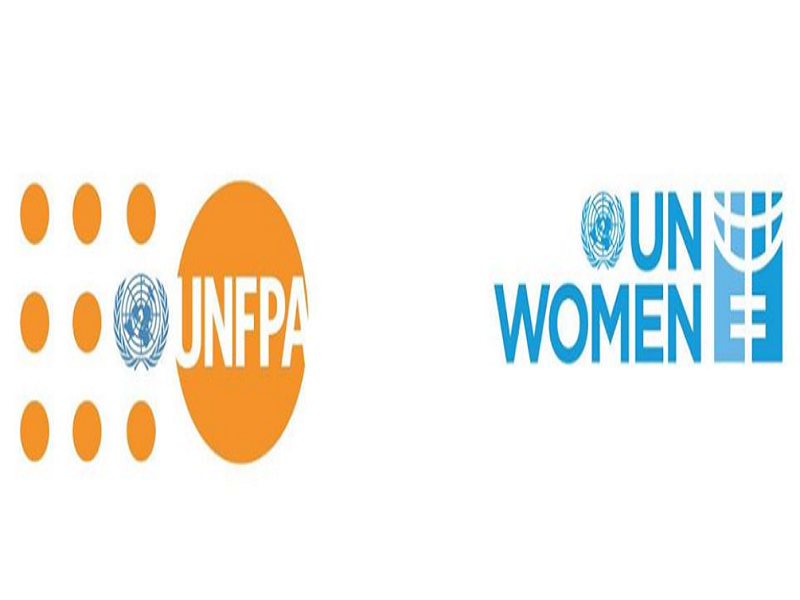Category: News Organizations: UNFPA , UN Women Tags:
· Exacerbated burdens of unpaid care work on women and girls: As healthcare systems are stretched by efforts to contain the outbreak, care responsibilities are frequently “downloaded” onto women and girls, who usually bear responsibility for caring for ill family members and the elderly. In particular, as all schools are closed, and residents are requested to self-isolate followed by a postponement of all activities. The closure of schools further exacerbates the burden of unpaid care work on women and girls, who absorb the additional work of caring for children.
· Meeting the needs of women healthcare workers: Women constitute the majority of workers in the health and social sector and are on the frontlines of the response. Women healthcare workers globally have called attention to their specific needs beyond personal protective equipment, including to meet menstrual hygiene needs. Psychosocial support should also be provided to frontline responders. The majority of caregivers, at home and in our communities, are also women.
· Increasing GBV and protection risks: It is proven that GBV and DV may increase during crises, as self-isolation and quarantine are implemented to contain the virus. Trends in China have shown that DV increased threefold in one month. Such trends are now visible in the U.S.A as isolation measures are implemented.
Kosovo Police have confirmed that in the first week of the isolation measures there has been a slight increase in reporting of DV cases. KP expect this trend to grow, and the reporting to increase. Additional efforts need to be made to make the Victims Advocates hotline number more visible to the public.
Kosovo Police have confirmed that in the first week of the isolation measures there has been a slight increase in reporting of DV cases. KP expect this trend to grow, and the reporting to increase. Additional efforts need to be made to make the Victims Advocates hotline number more visible to the public.
· Experiences have demonstrated that where women are primarily responsible for procuring and cooking food for the family, increasing food insecurity as a result of the crises may place them at heightened risk, for example, of intimate partner and other forms of domestic violence due to heightened tensions in the household. In addition, life-saving care and support to GBV survivors (i.e. clinical management of rape and mental health and psycho-social support) may be disrupted in one-stop crisis centers in tertiary level hospitals when health service providers are overburdened and preoccupied with handling COVID-19 cases.
· During public health emergencies, human and financial resources are often diverted from various health programs to respond to the infectious disease outbreak. Sexual and reproductive health services are being impacted by the pandemic and must be prioritized.
· High Maternal Mortality Ratio (MMR) in a country is a strong indication of a weak health system. The COVID-19 pandemic will further strain health systems, and is expected to severely impact the health systems of low- and middle-income countries - with worse impacts in countries experiencing fragility and humanitarian crises. Preparedness and response support to countries with high maternal mortality rates will be critical in low income countries - and in pockets of populations with high maternal mortality rates in middle-income countries. Such measures must pay special attention to ensuring the continuation of basic services such as maternal and newborn health and sexual and reproductive health services and supplies.
· Modern Contraceptives Commodities and Supplies, including menstrual health and hygiene items, are central to adolescents and women’s health, empowerment, and the exercise of sexual and reproductive health and rights as these groups can be disproportionately affected by the pandemic.
· Supply chains are being impacted by the pandemic. The closing of borders and constraints in manufacturers’ delivery flows are negatively affecting the import and in-country availability and distribution of contraceptives, essential maternal health medicines and other essential medicines including antiretroviral (ARV) drugs. This could have life-threatening consequences and reverse recent gains to ensure universal access to sexual and reproductive health (SRH), which encompasses access to modern contraception, maternal and newborn health and ARVs for human immunodeficiency virus (HIV).
· Cultural factorsmay exclude women from decision-making spaces and restrict their access to information on outbreaks and availability of services.
Read more
· Impacts on women’s economic empowerment: crises pose a serious threat to women’s engagement in economic activities, especially in informal sectors, and can increase gender gaps in livelihoods.
Read more




